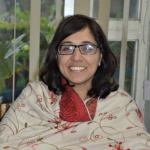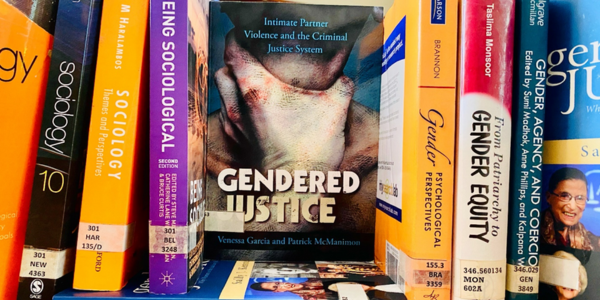by Rabbia Aslam
I would like to describe the disparate experiential realities and structural impediments related to gender and disciplinary boundaries that future scholars will continue to encounter in the process of applying for a Ph.D., and specifically how this relates to those interested to work on gender issues and feminist knowledge production within sociology degrees in Pakistan.
Disciplinary boundaries necessarily imply methodological restrictions that limit our ability to access other forms of meaning-making or unpacking certain terms. Sociologists in Pakistan have not actively engaged with feminist scholarship, local or even Western, and remain reluctant to deconstruct the androcentrism of many academic disciplines.
Feminist researchers and scholars have called for an examination of androcentric bias within the social sciences. In the Pakistani context, institutional resistance and structural barriers impede the operationalization of feminist knowledge production.
In my research proposal, which I submitted as part of my Ph.D. proposal defense, I argued that feminist knowledge production in meaning-making that relies on feminist principles is not encouraged. The department responded by saying that the Ph.D. proposal should be sociologically oriented, and not a form of feminist research. Indeed, most scholars’ work is criticized for not being ‘sociological’ enough, and feminist research principles are not regarded as sufficient evidence for ‘knowledge production’. During a meeting with the department, I was informed that the criteria that define genuine knowledge production are established by local higher education commission-recognized journals. From this viewpoint, knowledge is restricted to sociology and does not include feminist research principles. The criteria for operationalizing the knowledge production are defined by what is published under the recognized journals of HEC (Higher Education Commission) in Pakistan and abroad. This means that work done by academics who publish with international publishing houses and have written book chapters at national or international levels is considered legitimate knowledge in view of our indicators of academic success. However, this limits the scope to a few international journals.
For me, it was a struggle to get enrolled in the Ph.D. Sociology program in 2018. It is only due to my MPhil degree in Sociology that I was able to enroll in a program, and less about my research proposal. If that had not been there, most universities in Pakistan and overseas would not have admitted me to their Ph.D. sociology programs if that hadn’t been the case.
Photo credit: Ghulam Mustafa, used with permission
In my case, the proposal review committee of the department suggested that discourse or content analysis of HEC-recognized published articles is the best way to assess what sort of gender knowledge is produced in the gender studies departments in Pakistan. Furthermore, I was advised by the committee to use the term ‘gender knowledge’ instead of ‘feminist knowledge’. They argued that because of the diverse interpretations of what constitutes feminist knowledge in Pakistan, it would be challenging to operationalize and contextualize my research. The committee’s advice indicates that feminist knowledge built based on feminist research principles is not regarded as valid or objective. Lastly, research produced under a sociology degree is evaluated by a sociologist, not a feminist scholar.
Moreover, when I proposed using participant observation as a technique to observe gender studies classrooms to see what kind of feminist knowledge production is in classrooms, I was informed that co-production in class is not recognized. I was informed that only tangible discourses can be used as part of the methodology and that observations cannot be included in sociological research because participant observation is an anthropological technique rather than a sociological one. In addition, academics in Pakistan are mostly invested in traditional research methods and usually are either unwilling or unable to recognize the importance of multi-disciplinary methods in the social sciences.
This reality is further compounded in the examination of newer disciplines such as decoloniality. Acknowledgment of the importance of decoloniality is mere tokenism in the Pakistani context. Pakistani academia and international academia are chiefly interested in making universities money-making enterprises. Linda Smith (1999) on “decolonial methods” and Njoki Nathani Wane & Kimberly L. Tood (2018) on “decolonial pedagogy” interrogate the notion of decolonizing pedagogy in educational institutions. Their book addresses the question of how to decolonize systemic structures, institutions, and educational systems that emerged out of colonial rationalities. It highlights the need to restore colonial wounds and regenerate knowledge that falls outside of the colonial model. It provides an excellent analysis of how people have resisted despite the disruption. In most of Pakistan, prominent sociologists Millan and Kanter rightly criticize the androcentric bias by noting how sociology relies on certain “field-defining models” that prevent the inquiry into new questions (Moss, 1975). Due to these arbitrary disciplinary boundaries among social sciences, one cannot opt for any course offered at another social sciences department when enrolled in the Ph.D. in Sociology. Decolonization, according to Joseph, is a lengthy process including the bureaucratic, cultural, psychological, and linguistic trick out of the colonial power (Joseph, 2017) and from my experience, I agree.
In our universities and many global universities, academic structures are shaped by the internationalization of education and recent cuts in funding from the governments. We still have a colonial legacy and we did not revise the criteria for academic innovation, creativity, and promotion. The colonial logic in the context of Pakistan is instead devaluing the local ways of expression, thinking, and writing. It is more concerned with the output of academic research. For this reason, feminist knowledge for projects related to auto-ethnographies, translation work, documentaries, and poetry writing might not interest the bureaucratic structures of the universities and funding bodies. The research tools are provided by them due to colonial influence on our education system and we are still looking for the validation of our academic work through colonial tools.
In addition, scholars such as Ngugi Wa Thiong’o, Chinua Achebe, Albert Memmi, Wole Soyinka, Ashis Nandy, Aimé Césaire, Linda Tuhiwai Smith, just to name a few have contributed outstanding analyses of the devastation of cultural traditions, education, and any form of social fabric through the colonial machinery. Many of them went one step further and offered recommendations on how to decolonize from the colonial master. Some were vocal about the importance of Indigenous languages, while Smith (1999) talked of research as a dirty word and how the colonizers used it to justify their colonial agenda through research. Similarly, Memmi (1965) put emphasis on the relationship between the colonizer and the colonized. Manan (2020) also argued that by imposing a colonial language, colonial research methods impede the capacity of indigenous languages to represent reality. He claims that the languages of the colonized lack “technical” or “scientific” vocabulary. This disagreement, brought about by colonial knowledge, removes the awareness of the pre-colonial (Asif, 2020). I often realize that language keeps me at the periphery, even whilst being at the core of Pakistani academia, due to the sociological vs. Feminist disciplinary divide in Pakistani academic scholarship.
So, it can be concluded that the undoing of the traditional academic perspectives within social sciences, particularly in sociology, is linked to the colonization of research methods, curricula, and teaching pedagogies. Furthermore, gender knowledge production within academic environments is hampered by colonial hierarchies of the discipline and creates a divide between the traditional social sciences and feminist knowledge production.
 Rabbia Aslam is currently working as a lecturer at the Centre of Excellence in Gender Studies at the Quaid-i-Azam University, Islamabad, Pakistan, with which she has been associated for more than ten years. She is a PhD in Sociology at Quaid-i-Azam University, Islamabad, and has been a visiting fellow at the Institute of Social Studies, Netherlands. With an academic background in sociology and gender, her research and teaching areas include violence, sociology of knowledge, sociology of gender, bifurcation in the education system, and postcolonial and decolonial thinking in Pakistan.
Rabbia Aslam is currently working as a lecturer at the Centre of Excellence in Gender Studies at the Quaid-i-Azam University, Islamabad, Pakistan, with which she has been associated for more than ten years. She is a PhD in Sociology at Quaid-i-Azam University, Islamabad, and has been a visiting fellow at the Institute of Social Studies, Netherlands. With an academic background in sociology and gender, her research and teaching areas include violence, sociology of knowledge, sociology of gender, bifurcation in the education system, and postcolonial and decolonial thinking in Pakistan.


